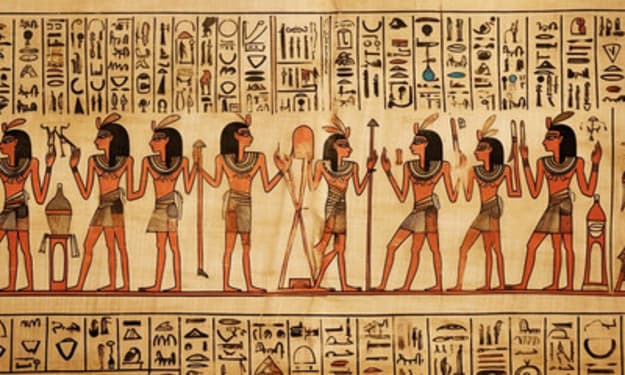The Qurans Insightful Perspective on the Events of the Judgement Day
The Judgement Day is a fundamental concept in Islam, and the Quran provides a detailed perspective on this event. It is a day when every individual will be held accountable for their actions in this world, and their ultimate destiny will be determined. In this article, we will explore the Quran's perspective on the Judgement Day, and how it provides guidance for living a righteous life in this world.

The Judgement Day is a fundamental concept in Islam, and the Quran provides a detailed perspective on this event. It is a day when every individual will be held accountable for their actions in this world, and their ultimate destiny will be determined. The Quran provides insights into the signs and events of the Judgement Day, the importance of preparing for it, and the role of good deeds and faith in salvation. In this article, we will explore the Quran's perspective on the Judgement Day, and how it provides guidance for living a righteous life in this world.
Introduction to the Judgement Day in the Quran

The Quran, the holy book of Islam, provides insight into the concept of the Judgement Day. This day is when Allah, the one true God, will judge humanity for their actions on earth. It is a day of reckoning where every individual will be held accountable for their deeds.
Understanding the Concept of the Judgement Day
The Judgement Day, also known as Yawm al-Qiyamah, is an essential aspect of Islamic belief. It is the end of time, where the worldly life will come to an end, and the afterlife will begin. It is a day when the ultimate truth will be revealed and Allah will judge every individual based on their deeds.
Importance of the Judgement Day in Islam
The Judgement Day is significant in Islam, and it is a fundamental belief for Muslims. It reminds believers of the importance of leading a righteous life and doing good deeds. It reassures them that there will be a day when every injustice will be rectified, and they will be rewarded for their good actions.
The Signs and Events of the Judgement Day
According to the Quran, there are specific signs and events that will take place before and during the Judgement Day.
Major Signs of the Judgement Day
The major signs of the Judgement Day include the appearance of the Dajjal, a false messiah, and the emergence of Ya'juj and Ma'juj, an army of evil beings. Additionally, the Quran predicts the appearance of the Mahdi, a righteous leader who will guide the people before the second coming of Jesus.
Minor Signs of the Judgement Day
The minor signs of the Judgement Day include natural disasters, social upheaval, and moral decay. These signs are seen as a precursor to the major events that will happen during the end of time.
Accountability and Reward in the Afterlife
The Judgement Day will mark the end of our worldly life and the beginning of the afterlife. Allah will judge all individuals based on their actions and intentions.
Belief in the Day of Judgment and Its Implications
Belief in the Day of Judgement is critical in Islam. It reminds us that our actions have consequences, and we will be held accountable for them. It also serves as a reminder for believers to strive for righteousness in this life.
Accountability for Our Actions in This Life
The Judgement Day is a reminder that our actions in this life have consequences in the hereafter. It reinforces the importance of leading a moral and ethical life and striving to do good deeds.
Divine Justice and the Reward for the Righteous
Allah is just and fair, and on the Judgement Day, every individual will be held accountable for their actions. Those who lived a righteous life will be rewarded with paradise, and those who committed evil deeds will face punishment.
The Role of Good Deeds and Faith in Salvation

Good deeds and faith are critical components of Islam and play an essential role in the Judgement Day.
Importance of Good Deeds in Islam
Islam places a significant emphasis on good deeds as they are seen as a means of attaining paradise. It reinforces the importance of doing good deeds and encourages Muslims to make a positive impact on society.
Relationship Between Faith and Good Deeds
Faith and good deeds go hand in hand in Islam. Faith without action is not enough, and good deeds without faith are not rewarded. It is a balance that Muslims strive to achieve to attain salvation in the hereafter.
The Punishment of Hell and the Bliss of Paradise
When it comes to the concept of the Judgement Day, one of the most common themes in religious texts is the idea of reward and punishment. Islam is no different with the Quran describing the ultimate reward in paradise and the ultimate punishment in hell. But what exactly do these concepts mean in Islam?
Understanding the Concept of Hell and Paradise in Islam

Hell (Jahannam) and Paradise (Jannah) are both described as physical places in Islam. Hell is a place of punishment, described as having intense heat and fire, where the disbelievers and sinners will be sent to dwell forever. Paradise, on the other hand, is a place of reward for the righteous, described as having rivers of pure water, beautiful gardens, and everlasting happiness.
What the Quran Says About Hell and Paradise
The Quran is quite clear about the punishment of hell for those who choose to reject God and lead a sinful life. It states, "But those who disbelieve and deny Our signs - those are the companions of Hellfire" (Quran 5:10).
In contrast, it also promises paradise for those who lead a righteous life and believe in God. The Quran says, "Indeed, the righteous will be in pleasure, and indeed, the wicked will be in Hellfire" (Quran 82:13-14).
The Importance of Preparing for the Judgement Day
Knowing that there is a reward and punishment awaiting us after death, it becomes crucial to prepare for the Judgement Day. But what does this preparation entail in Islam?
Preparing for the Judgement Day in Islam
Preparing for the Judgement Day in Islam involves living a righteous life and following the teachings of the Quran and the Prophet Muhammad (peace be upon him). This includes acts such as performing the five daily prayers, giving to charity, and avoiding sins such as lying, cheating, and backbiting.
How to Prepare for the Judgement Day
Preparing for the Judgement Day in Islam also involves seeking forgiveness for past sins and constantly striving to improve oneself. Good deeds and acts of worship are considered a means of seeking forgiveness and earning reward in the afterlife. The Quran encourages the believers to "race toward forgiveness from your Lord and a Garden whose width is like the width of the heavens and earth" (Quran 3:133).
The Quran's Guidance for Living a Righteous Life
Living a righteous life is not just important for preparing for the Judgement Day, but also for leading a fulfilling and meaningful life in this world. The Quran provides guidance on how to live such a life.
The Quran as a Guide for Living a Righteous Life
The Quran is considered a manual for living a righteous life in Islam. It provides guidance on ethics, morality, and spirituality that are relevant to all aspects of life. The Quran states, "We have certainly sent down to you a Book [the Quran] in which is your mention. Then will you not reason?" (Quran 21:10).
Key Principles of Living a Righteous Life in Islam
Some key principles of living a righteous life in Islam include showing kindness and compassion, being honest and truthful, treating others with respect, and seeking knowledge and wisdom. These principles are emphasized in the Quran and are considered integral to practicing Islam.
Conclusion: Reflection on the Quran's Insightful Perspective on the Judgement Day

The Quran's perspective on the Judgement Day provides believers with a roadmap for living a meaningful life and preparing for the ultimate reward or punishment. By following the guidance of the Quran and striving to live a righteous life, believers can find purpose and peace in this world, while also securing a place in paradise in the afterlife.
In conclusion, the Quran's perspective on the Judgement Day provides a powerful reminder of the importance of leading a righteous life in this world. By preparing for the Judgement Day and striving to do good deeds, we can hope to receive divine reward and avoid punishment. The Quran's guidance can help us lead a fulfilling life in this world and ultimately achieve success in the Hereafter.
About the Creator
Krishna raj
"If your dreams don't scare you, they're too SMALL"






Comments
There are no comments for this story
Be the first to respond and start the conversation.